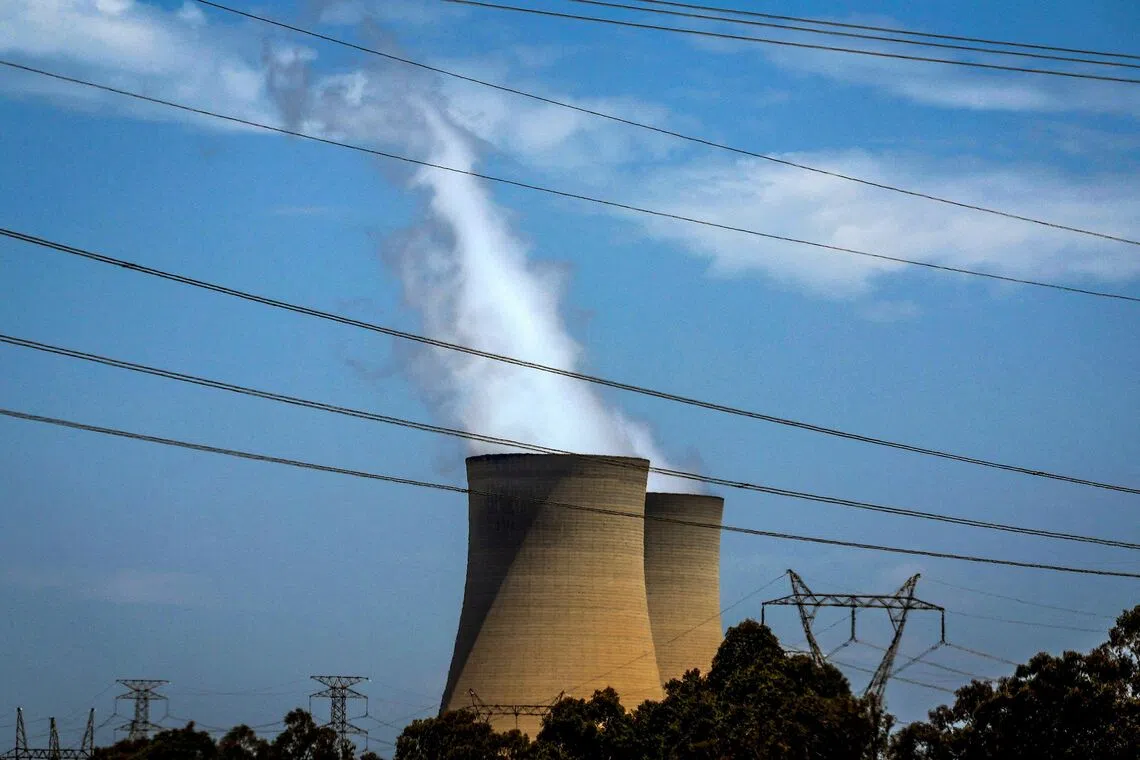Australia vows to cut emissions by 62 to 70% by 2035
Sign up now: Get insights on Asia's fast-moving developments

Australia’s goals to slash greenhouse gas emissions are above those of Canada and neighbouring New Zealand.
PHOTO: AFP
SYDNEY – Australia pledged on Sept 18 to slash greenhouse gas emissions by 62 per cent to 70 per cent from 2005 levels over the next decade, after warnings that homes and livelihoods are under threat.
Under the Paris accord, each country must provide a headline figure to the UN for cutting heat-trapping emissions by 2035, and a detailed blueprint for how to achieve this.
“We listen to the science, and we act in Australia’s national interest,” Prime Minister Anthony Albanese said as he unveiled the goal.
Australia’s goals are above those of Canada and neighbouring New Zealand, but below Britain, which is one of the most ambitious in the world.
Global emissions have been rising, but need to be cut by almost half by the end of the decade to limit warming to the safer levels agreed under the Paris deal.
Australia’s previous 2030 commitment was to cut emissions by 43 per cent from 2005 levels.
Countries were meant to submit updated targets earlier in 2025, but only 10 of nearly 200 countries required under the Paris Agreement did so on time, according to a UN database tracking the submissions.
The Climate Change Authority warned that the world was on track for 2.9 deg C of warming this century based on previous 2030 commitments.
Australia’s pledge follows the release this week of a national climate risk assessment that found rising temperatures will have “cascading, compounding, concurrent” impacts on life in Australia, home to more than 27 million people.
It warned that rising oceans and flooding caused by climate change would threaten the homes and livelihoods of more than a million Australians by 2050.
The country has poured billions into solar power, wind turbines and green manufacturing and pledged to make the nation a renewable energy superpower.
But Australia’s green ambitions are at odds with its deep entanglement with lucrative fossil fuel industries. It remains one of the world’s biggest coal exporters and continues to heavily subsidise fossil fuel sectors.
The sun-kissed country has attempted to burnish its green credentials by bidding to host the 2026 UN climate summit alongside Pacific island neighbours threatened by rising seas. AFP


